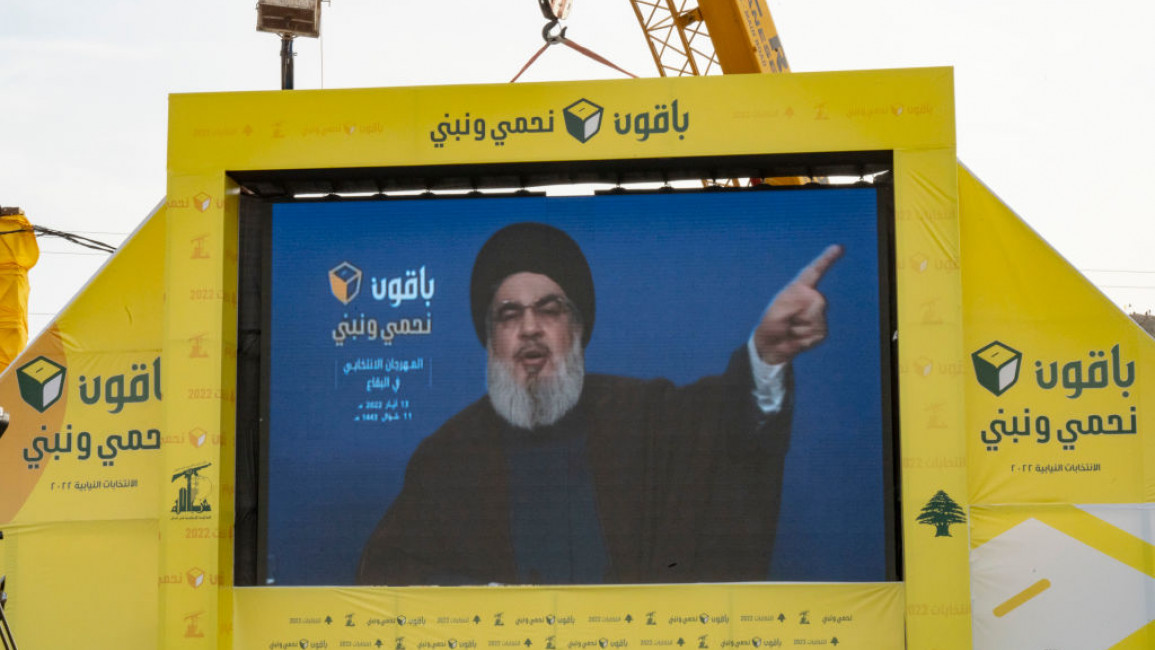Lebanon: Hezbollah 'not afraid of war', can stop Israel extracting gas from disputed Karish field, Nasrallah says
The head of Lebanon's Hezbollah said on Thursday that his group could stop Israel from extracting gas from a maritime field that lies in disputed waters, adding that Hezbollah is "not afraid of war".
Lebanon warned Israel on Sunday against any "aggressive action" in disputed waters where both states hope to develop offshore energy, after a vessel operated by London-based Energean arrived off the coast to produce gas for Israel.
Hezbollah "has the capacity to prevent the enemy from beginning to extract from Karish, and all the enemy's actions will not be able to protect this ship," the Iran-backed group's chief, Hassan Nasrallah, said in a televised speech.
Nasrallah said that "the Greek company," referring to Energean, "is a partner in this attack on Lebanon," for which it will face "consequences."
Energean was not immediately available for comment.
The firm has said that its floating production storage and offloading vessel is due to start production at Karish in the third quarter.
Israel says that the field in question, which is about 80 kilometres west of the city of Haifa, is within its exclusive economic zone, not in disputed waters.
But Lebanese President Michel Aoun on Sunday said that maritime border negotiations between the two countries have not ended, adding that any move by Israel — such as drilling in the disputed Karish field — will be considered "a provocation and hostile act".
The United States began mediating indirect talks between the sides in 2000 to settle a long-running dispute that has obstructed energy exploration in the eastern Mediterranean.
Lebanese parliament speaker Nabih Berri said on Tuesday that US mediator Amos Hochstein will visit Beirut early next week but Washington has said there are no travel plans to announce yet.
The indirect talks between Lebanon and Israel have been stalled for months amid disagreement within Lebanon over how big the disputed area is.
During his televised speech on Thursday, Nasrallah said Israel should wait for the results of the negotiations and that any drilling that takes place before an agreement will be considered a direct assault on Lebanon.
"All options are on the table," he said.
(Reuters, AP)



